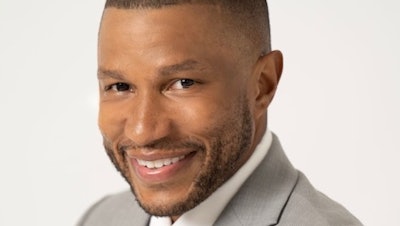In 2019, following the 5000 Role Models of Excellence Project Dr. Martin Luther King Jr Scholarship Breakfast in Miami, I observed attendees gathering around one of the honorees, actor Danny Glover. However, my attention was drawn to the man accompanying him, Bob Moses, who went largely unrecognized by many. Moses, a distinguished figure in civil rights and education, was one of the primary organizers of the historic "Freedom Summer" initiative that unfolded in Mississippi in 1964.
 Dr. Marcus Bright
Dr. Marcus Bright
He and many others who came to work on the project displayed great dedication and intentionality in their efforts to support the often-overlooked sharecropper population to register to vote. This level of commitment serves as a valuable blueprint for connecting with another often-overlooked population: high school students who are slated to exit high school without graduating. They are often pushed out of schools early so that they won't reflect badly on the school's graduation rate or left out when school ends with little to no viable options outside of the lowest wage legal labor market or taking "penitentiary chances" in the illegal underground economy.
We, as an education community, can apply some lessons from Freedom Summer and help guide these students toward successful pathways that include acquiring industry-recognized credentials. Activists like Moses immersed themselves in the communities they sought to support. They would sleep on the plantations and work them just to try to talk to people. They wore overalls. That was their way of not being identified.
The risks for the organizers and the people who dared to even try to register to vote were immense. People could lose their jobs, have their housing bombed, and be killed for even attempting to register to vote. A tragic example of this was the brutal killing of three Freedom Summer workers — Andrew Goodman, James Chaney, and Mickey Schwerner — which served as a poignant reminder of the perilous circumstances encountered by those advocating for change within a system of oppression.
Despite these obstacles, organizers persisted in their efforts, emphasizing the importance of local elections and the impact of boards and sheriffs in the day-to-day lives of Mississippi residents. People like Fannie Lou Hamer worked to galvanize people to push past their fear and reach for the ballot box as a way of bringing about needed change to improve their circumstances.
In a similar vein, engaging with high school students who may be hesitant about their prospects of not graduating with the rest of their peers this spring requires a compassionate and strategic approach. Just as activists offered support and sustenance to hesitant sharecroppers, mentors and educators can provide guidance, resources, and encouragement to students navigating uncertain futures.
By employing the same spirit of empathy, perseverance, and intentional outreach that characterized the voter registration efforts during Freedom Summer, educators and mentors can empower non-graduating high school students to envision and pursue meaningful career pathways. Through targeted support and a focus on attainable milestones, these students can be equipped with the skills, confidence, and opportunities needed to thrive in their chosen fields and contribute positively to their communities.
The actual execution of the intention to connect non-graduating students with meaningful opportunities to acquire advanced educational and industry-recognized credentials is easier said than done. First, there is the work that must be done to locate where they are and be in a position to have one-on-one or small group discussions about what viable options for these students.
This requires individuals from post-secondary institutions or those who are knowledgeable about opportunities and access points at those institutions to work with high school principals, administrators, teachers, and counselors to relay information to students and parents to help guide those who are interested through the matriculation process.
All of this takes commitment, intentionality, and persistence, similar to what was employed to get people to register to vote in Mississippi with the primary difference that one does not have to do it under the threat of violence. These efforts to reach overlooked student populations like these are hard but necessary if the school-to-prison pipeline is to be converted to pipelines of preparation, productivity, and prosperity.
We, as a collective community, need to make a new commitment for this group of students who are exiting high school in 2024 to have a “Freedom Summer of Opportunity,” where we do all that we can to ensure that every student is on a positive pathway, whether they graduate this spring or not.
Dr. Marcus Bright is an author and social impact professional.
















